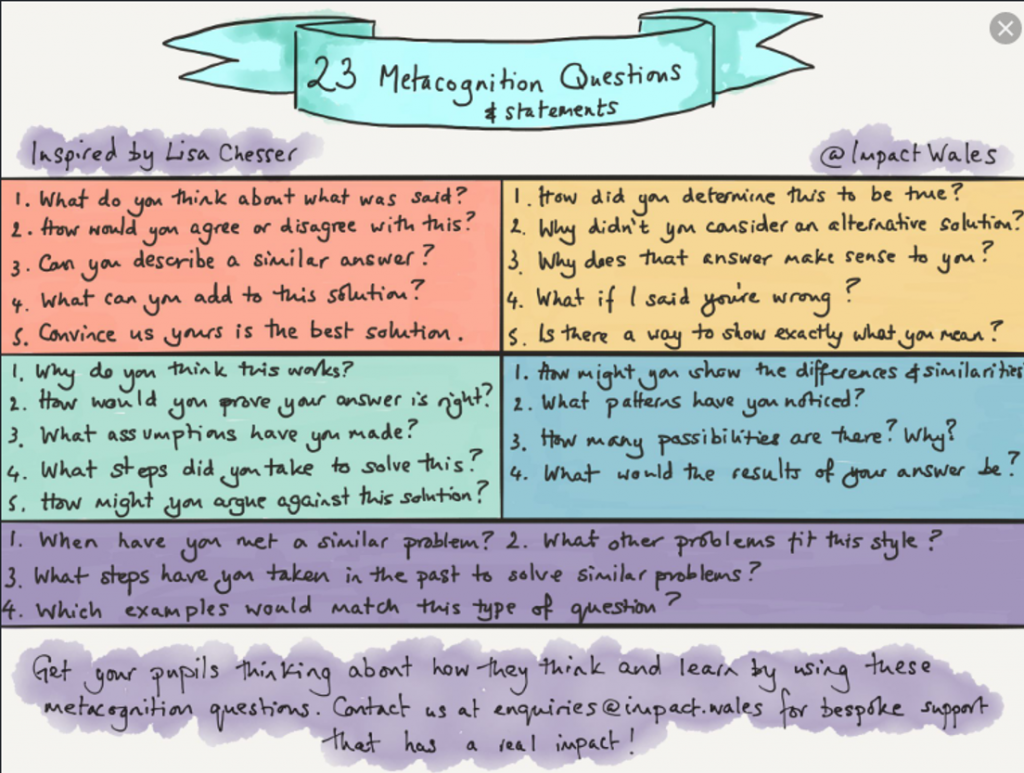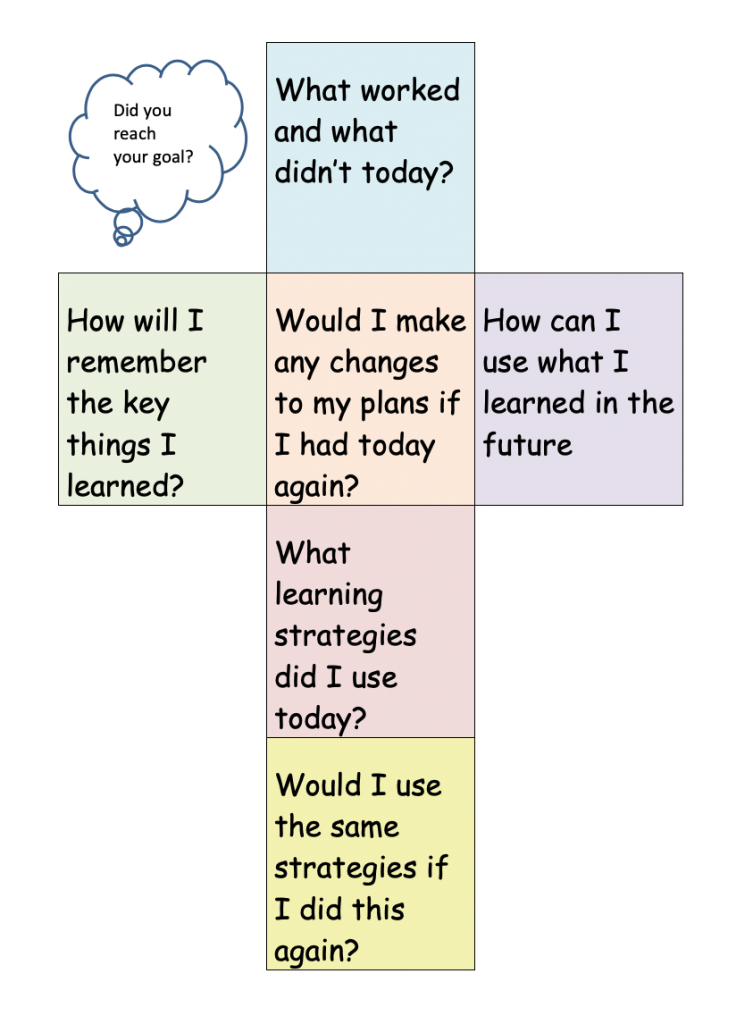Recall, Think, Feel, Discuss, Map, Make Connections, Reflect, Understand how you learn
Download the document here: Metacognition Activities (word doc) or Metacognition Activities (PDF doc)
- Keep a thinking journal
- Estimate how long any task will take and then check how long it actually takes
- Make a list of the types of activities that make your learning enjoyable (eg mapping, drawing, acting out, teach the cat…)
- Keep a question book of the most interesting questions (and answers) that you have asked each day
- Discuss what your strengths are and keep a comic strip diary of how you have used these strengths each day
- Make a diagram to show what methods work for you to complete different tasks
- Work out how to explain and demonstrate a topic to a toddler to keep them interested
- Sketch something every day 3 times. Each time add more detail. What did the new detail make you think about or ask questions about?
- Describe a picture in detail for someone else to draw and think about what was similar in the new drawing and how you could make other descriptions even more clear for your partner.
- Make a poster of the things that bring you pleasure and that bring someone else pleasure. In the border write as many words as you can that are positive mood words
- Make a poster for things that annoy you and one for someone else. In the border write as many words as you can for uncomfortable emotions
- Keep a prediction comic strip for the book you are reading. When your prediction was different from the author think about how the story would have gone with your version
- Sum up a topic/programme/book in exactly 30 words
- Talk about a given topic for one minute without repetition or hesitation. Now make a poster on the subject. What did you miss out? Think how you would plan to speak about it again. Can you find a method which makes it easier for you?
- Play word association for six words and then recall the whole string and reason what the connections were. You can extend for as long as you are able
- Make a question poster
- Design success criteria for a task you are doing.
- Make an “It reminds me of …” poster
- Keep a journal of things that you had to investigate or question
- Make an I wonder poster or keep an I wonder journal with a new illustrated question on each page and some places where an answer could be found or ways that the question could be investigated
- Review a task you struggled with. Make a map of alternative ways to solve it
- Make a map of a task to relate it to learning you already have
- Make a poster with skills of concentration, cooperation, investigation, creation and explanation and illustrate what helped or hindered you today
- Use the metacognition questions with members of your family
- Throw the metacognition dice and discuss the question
For example:
- Take any subject and try and recall at least 7 facts about it.
- Discuss your feelings or beliefs about the topic and these facts, giving and hearing reasons
- For each subject design at least 4 questions. They could be connecting the topic to something else or they could be an aspect of the topic in detail, history, geography, number etc.
- Design a plan of action to find out and present your new expert status
- Carry out your plan
- Present your learning
- Evaluate how much of an expert you are on your aspect of your topic



Recent Comments